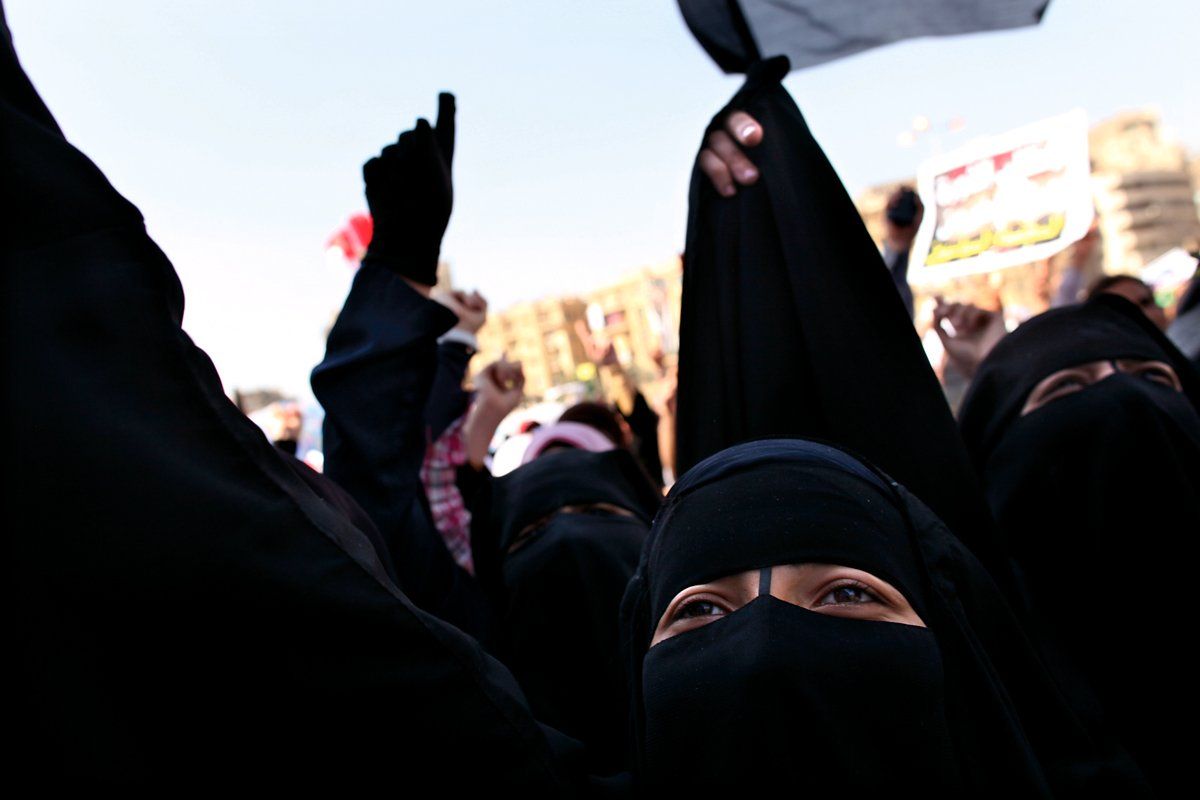
Recent events seem ripe for an Islamist edition of Animal Farm. Granted, George Orwell's classic fairy tale would need to be changed here and there. For one thing, having pigs as the central characters might not be appropriate. Perhaps goats would be better. But the basic story, a tale of bitter infight-ing among power-hungry "revolutionaries," could be adapted easily enough. And it just might help disabuse the chattering classes in Washington and Europe of their fear that a supposedly monolithic Muslim political front is about to take over the Middle East—and someday maybe even Middle America.
Lest some sheik or mullah mistakenly think I'm mocking his faith, let's make ourselves clear: we're not talking about God here. We're talking about a parable of all-too-human politics. We could talk about communism (as Orwell does), or fascism, or for that matter Jacobinism, Catholicism, Protestantism, Judaism, Hinduism—you name it. Political ideology and political religiosity inevitably become the domain of intense, driven individuals out to impose their visions on others. In quest of their own ends, they speak in the name of the people, or of God, or both. Their first, worst enemies are usually fellow believers whose ideas slightly diverge from theirs—or those who simply stand in the way of their ravening ambition. And once they gain power, purges follow.
For a deathly grim sense of how that worked in Stalin's day, reread Arthur Koestler's Darkness at Noon. Or go back to Animal Farm, and look at the way Napoleon (Stalin) dispatches Snowball (Trotsky) after they take over the Manor Farm from Mr. Jones. History offers countless examples. But let's stick to the present-day Middle East.
At the moment, the West's big worry is Egypt. In the first rounds of that country's ongoing parliamentary elections, various parties regarding themselves as holier than thou (or at least holier than one another) drew some 60 percent of the ballots. That breaks down to 40 percent for the Muslim Brotherhood, which is trying hard to show it can work with secular parties to build a modern Egypt, and 20 percent for the Salafis, who affect what they consider the philosophy and even the sartorial tastes of the Prophet Muhammad's seventh-century companions. You can generally spot them at a glance: Salafi men by their robes and scraggly whiskers (and the women by their veils), and Brotherhood men by their trimmed beards and drab business attire, while the women stick with headscarves.
It's hard to imagine two political groups who detest each other more. As long as they had a common enemy in President Hosni Mubarak, they could overlook their differences. Back when both groups were outlawed, they could agree that "Islam is the solution." But now they have to ask themselves just what they mean by that slogan. After all, when men in turbans gain power, they can be just as corrupt and destructive as any other dictators: just look at Sudan and Iran. So far, the failed fundamentalist elites in those two countries have proved impossible to remove, even when they've fallen into fratricidal conflicts. At least in the countries that led the Arab Spring, there's still a good chance that if hardline Islamists are voted into office today, they could be voted out tomorrow.
In the meantime, that new edition of Animal Farm could be worth reading. Like any parable, it wouldn't have to be taken literally, but it might shine a light on the risks looming in the future. In the original, you'll recall, the barnyard rebels seize power with the slogan "ALL ANIMALS ARE EQUAL," only to amend it at the end of the tale, after purges and betrayals, with the phrase "BUT SOME ANIMALS ARE MORE EQUAL THAN OTHERS." In the opening pages of the new version, the goats, too, might decree that "ALL ANIMALS ARE EQUAL." But at the end they'd make it clear: "ANIMALS WITH BEARDS ARE MORE EQUAL THAN OTHERS."
Uncommon Knowledge
Newsweek is committed to challenging conventional wisdom and finding connections in the search for common ground.
Newsweek is committed to challenging conventional wisdom and finding connections in the search for common ground.





